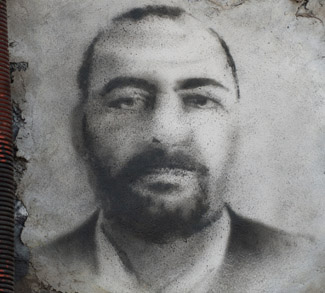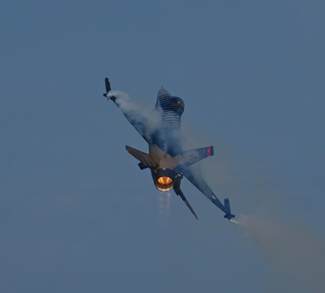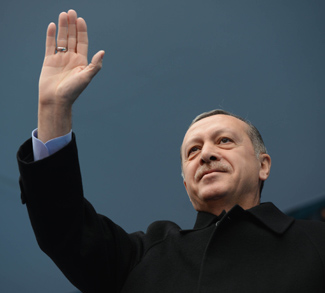There is no doubt that Daesh poses a new and powerful extremist threat having taken most of northern Iraq and Syria. Daesh (or Islamic State), a Sunni extremist movement, has dominated in Syria because of its Sunni majority population being ruled by an oppressive Shia regime in Bashar Al-Assad.
Additionally, Sunnis have been pushed north of Baghdad subsequent to the US invasion of Iraq, closer to where Daesh dominates in major cities like Mosul.
Daesh has strategically built up the base of its land operations around major Iraqi oil infrastructure in Mosul, and the group produces 38,000 barrels of oil per day from large Syrian deposits like al-Tanak and al-Omar fields (together producing 78% of Daesh’s oil).
This gives Daesh an additional source of revenue and financial stability as they continue to impose their ideology in the region. The combined effect of oppressed Sunnis looking for an alternative, a sufficient flow of funds, and a youth movement targeted at successful online recruitment paints a very successful picture for Daesh.
So why is Daesh about to fall?
The group is a new Sunni extremist organization, but it is falling victim to the same historical outcomes as other Sunni groups like the Palestinian Liberation Organization (PLO) and Al-Qaeda in Afghanistan. Like most Sunni extremist groups, Daesh was built around a clear purpose, an Islamic State, and when that message of purpose is lost the extremist group crumbles from within.
To understand this point let me take you through the PLO’s plight to establish a legitimate Palestine. The PLO and Yasser Arafat were the moderate Sunni Muslims that both fought and attempted to work with Israel to revive Palestinian government in Gaza and the West Bank. In July 2000, when the two-state solution talks broke down at Camp David between Arafat, Israeli Prime Minister Ehud Barak, and President Bill Clinton, the current uprising and tension between Palestine and Israel began. Fractions were created within the PLO as more frustrated Sunni Muslims joined terror groups Hamas and Islamic Jihad. The purpose of the PLO was gone, and the group was dealt its final blow with the passing of Arafat. After Arafat’s death, Hamas and random acts of terror towards Israel were the norm and a legitimate Palestine has yet to be established.
The second example of extremists built upon purpose was the Taliban in Afghanistan after its emergence from the Soviet insurgency from 1994-1996. After 1996, the Taliban formed a government in Afghanistan and were supported by Pakistan and Saudi Arabia. However, during Taliban rule, 9/11 mastermind Osama bin Laden set up shop in the country. Osama bin Laden’s Al-Qaeda in Afghanistan had establishing a new safe haven where they could work with the Taliban in recruiting fighters, building training camps, and planning horrific international terrorist attacks. After the 9/11 attacks, the US vowed to remove the extremist-inspired Taliban from power. The US did so swiftly and brutally and forced the Taliban and Al-Qaeda out of Afghan government. A dejected Taliban lost their sole purpose, the power to govern a “Muslim nation”; since then, the Taliban has struggled to re-gain power and have resorted to generating fear with a focus on suicide bombings and random acts of terror.
The fall of both Arafat’s PLO and the Taliban under Bin Laden’s Al-Qaeda came at the hands of a loss of purpose. When it was clear Arafat was not going to be successful with a two-state solution, the PLO broke up into terrorist factions like Hamas, lost support from Arab nations, and never re-established working towards the purpose. Similarly, after establishing a government in Afghanistan supported by strong Sunni nations, the Taliban was weakened by Bin Laden’s attack on US soil which resulted in the Taliban’s removal from power, and both Al-Qaeda and the Taliban never re-established the same grasp on power; instead, they continue to resort to terrorism against the Afghan people.
The Daesh Path
Daesh is heading down a similar road. The purpose of Daesh was for a Sunni ruled Islamic State that would free Sunni Muslims from the oppression of Shia governments and promise recruited fighters that they would start an unstoppable movement as they continued to take large plots of land. Now, as Shia and Kurdish militias take that land back and major countries like the United States, Russia, and France launch major air bombing campaigns, Daesh is losing ground.
In signs of a last ditch effort, Daesh has now begun a campaign of international terror in Lebanon, France, and Egypt. That is where Daesh will fall. Daesh’s purpose is slowly transitioning from an Islamic State to just another terrorist group similar to Al-Qaeda and Hamas. Daesh is likely re-focusing on international terrorism to deflect from the loss of an established Islamic State, or in a hopeful effort to recruit fighters that they desperately need.
Daesh will likely set out to conduct several acts of terrorism on the international stage, some may be grandiose and most are likely to be foiled, but these random acts of terror and a lack of master plan will deter recruits from joining Daesh. Daesh will continue to lose peripheral land around Iraq and Syria and the heads of the group will slowly fraction into two distinct groups: radical terrorists and moderates. The radicals will continue to inflict fear but with much less grandiose, and with dwindling financial backing and popularity. The moderates may continue to govern in small tribal groups and may, perhaps, work with international players to establish a legitimate and recognized sovereign state within a state like Kurdistan. This will likely take decades, but if history has anything to say about this, Daesh and its Islamic State will fall just like the rest.
The opinions, beliefs, and viewpoints expressed by the authors are theirs alone and don’t reflect any official position of Geopoliticalmonitor.com.




